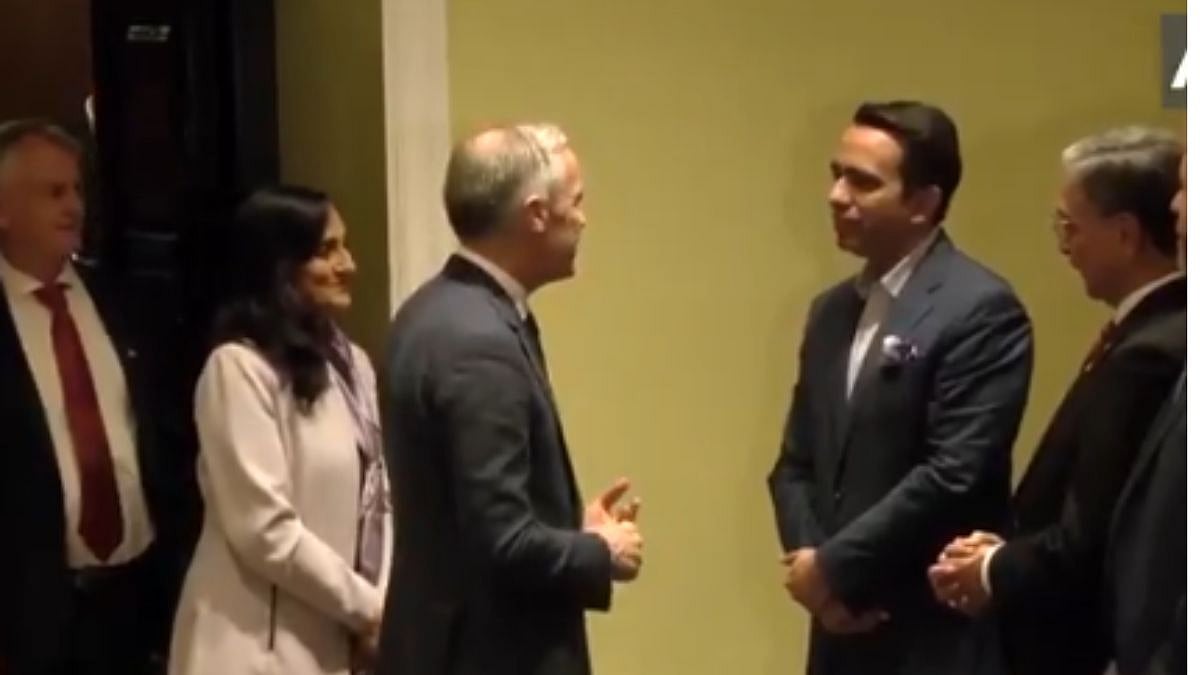This year, as the rich and powerful, the famous and influential, gather at Davos, the world seems in an even more precarious position than ever before. If last year saw the war in Europe — as Russia invaded Ukraine — this year sees the genocide in Palestine, as Israeli troops pound Palestinian civilians in retaliation for the Hamas carnage on Israeli settlers in the occupied territories. If that were not enough, we have the UK-US combination bombing the Houthis in Yemen; the refugee crisis in various pockets of the world; an energy crisis that is looming; the very real threat of AI replacing jobs; rising inequality and much more.
Each year, since 2004, the World Economic Forum has assessed the major threat that we as a planet face. It looks at risks that can impact all our lives. But, they don’t just list problems, they also look at ways of mitigating the risks. The 2024 Global Risks Report just got released. And right at the top of the short-term risks (next two years) is misinformation and disinformation.

Global Risks Report 2024 | World Economic Forum
We can argue that in a world which faced its hottest temperatures in 125,000 years and where climate change is a very real thing, it is farfetched to place disinformation above extreme weather conditions. But the fact is that the perils of global warming have been known for some time. Furthermore, to a greater or lesser extent governments are taking some action to try and mitigate the impact of extreme climate.
But disinformation is a whole different ball game. Its impact is not just under the radar in most places, it is actively sought, consumed and circulated by ordinary people, and the media. And now AI cannot just create credible fakes, it can also distribute them faster, better and more effectively. This is considered a threat because of the damage it can do all around — from polarising societies, to upturning elections, to shaking trust in public institutions and election processes. Misinformation and propaganda work best on what Israeli historian and popular writer Yuval Noah Harari calls “hacking emotions”.
As a hungry news ecosystem, and social media, reduce our responses to binaries – nuance is lost. We are no longer sparring, trying to reach a consensus, but head-butting – trying to win a combat. In such scenarios emotions are heightened. The sense of being under attack, and under siege, are very real. And we respond in kind. For people out to change the agenda, it is vital that they move us away from consensus to conflict. And misinformation plays to the gallery that is ready to hear only their side, and see the other as the enemy. The spread of misinformation plays off our own confirmation bias.
The Global Risks Report 2024 highlights three major areas of concern with this flood of misinformation, much of it generated and disseminated by AI. The first is the “radical disruption of the electoral process” in several nations. The second is, “deepening polarisation”. And lastly, the risk of “repression and erosion of rights” as governments crack down on misinformation. The last pertains to the fact that in an age where we can whip up the emotions of online mobs, it is easy to term anything “misinformation” and penalise it, if there is no due process in place.
The report also warns that there will be a danger of an increase in stock market manipulations through misinformation. It would be easy enough to drive a company’s stock up or down through strategic placement of fake news. And finally, of course, there is the issue of deepfakes and non-consensual deep-fake pornography that is increasingly coming into the limelight.
It needs a robust response from both governments and civil society. This response must be measured, and balance the need to combat misinformation effectively while safeguarding freedom of expression and avoiding censorship. One approach is the development and implementation of comprehensive digital literacy programmes. These programmes, aimed at people of all ages, would educate the public on how to identify, analyse, and critically evaluate the information they encounter online.
Furthermore, technology companies, especially Big Tech, play a crucial role in this fight. They need to continue improving their algorithms to better detect and flag false information, while also ensuring transparency in their processes. Collaborative efforts between tech companies, fact-checkers and government agencies could lead to the creation of more sophisticated tools to identify and suppress harmful misinformation without blocking the free flow of information.
Additionally, the role of independent fact-checking organisations becomes ever more critical. These entities can provide unbiased verification of information and serve as a reliable source for debunking false claims. Their work, however, needs adequate support and recognition, ensuring they have the necessary resources to operate effectively in an increasingly complex information landscape.
And finally, while it may be good to have a greater global understanding of what is misinformation and how to suppress it, different nations have different concepts of “freedom of expression” and reacahing an agreement would probably become a barrier to combating misinformation.
As a species, propaganda and lies have always been a weapon in the arsenal of kingdoms and nations. But today its creation and spread is at a different scale. The rise of misinformation and disinformation as a primary global risk underscores the danger it poses to individuals, societies, and economies. It needs to be addressed with the seriousness it deserves.
The writer works at the intersection of digital content, technology, and audiences. She is a writer, columnist, visiting faculty, and filmmaker




